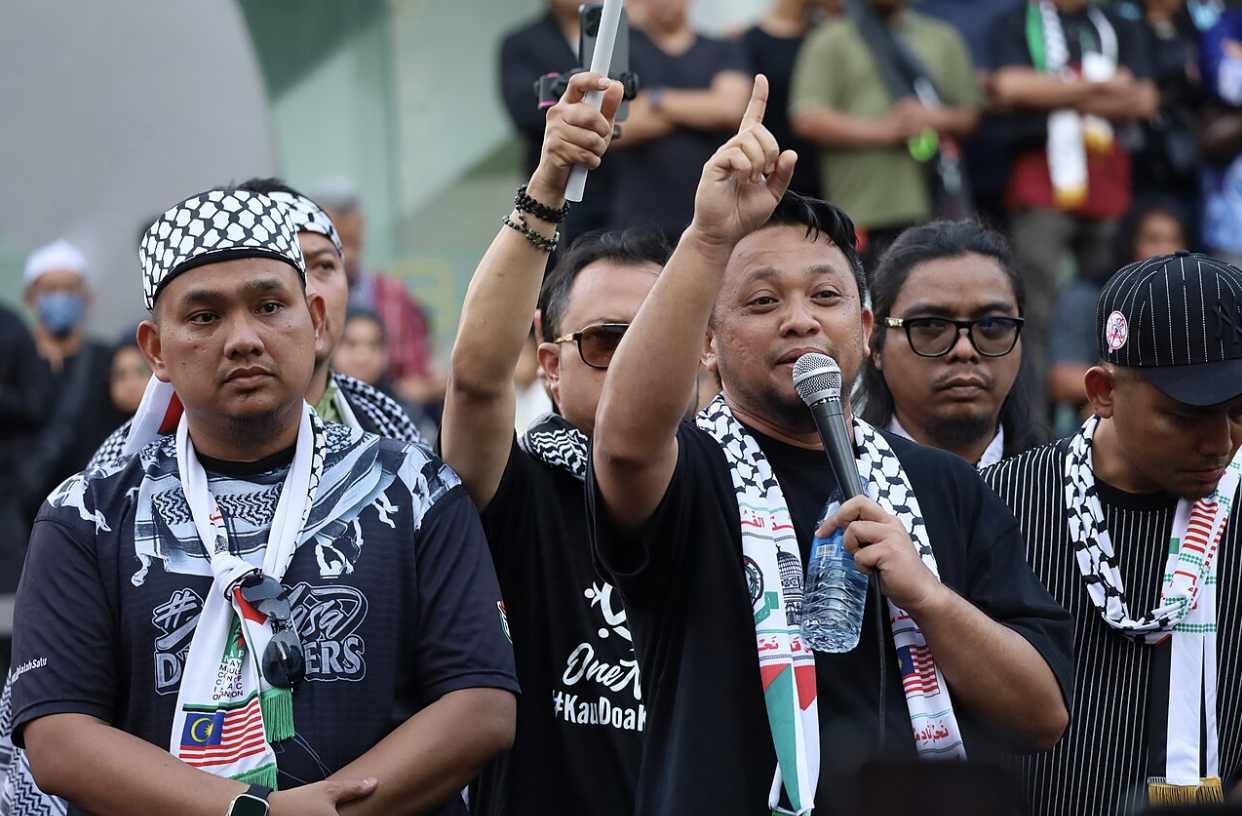ASEAN and Palestine: Unbreakable Bond

Rachel Tay, MA Middle Eastern Studies
For days, thousands have been thronging outside the United States’ embassy in the Malaysian capital, Kuala Lumpur, after Sumud Nusantara vessels – part of the Global Sumud Flotilla – were intercepted by Israeli authorities earlier this month en route to Gaza. According to media reports, some 23 Malaysian volunteers were among those detained.
Yet, this is not the first time pro-Palestinian protests have taken place in Malaysia. Kuala Lumpur has long supported the Palestinian cause and called for a two-state solution. In the last two months alone, Malaysia has witnessed more than 20 Gaza-related demonstrations.
So, what makes the recent protests there a focal point?
While demonstrations are common after Friday prayers, they have been increasingly spilling over into public spaces such as shopping malls, petrol stations, and US-linked stores. With US President Donald Trump’s upcoming visit to Kuala Lumpur during the ASEAN summit, this anger may potentially boil over, as activist groups have planned a major rally on October 26th.
Malaysia, however, is in a difficult position as ASEAN’s chair this year. It is drawing ire not just from its own people, but also from Washington-linked commentators who accuse the country of being a hub for Hamas operations. Kuala Lumpur has longstanding ties with Hamas, the Palestinian militant group that administers Gaza, which the US and Western nations have termed a ‘terrorist’ organisation. Prime Minister Anwar Ibrahim has sought to defuse the situation by reassuring the Trump administration of Malaysia’s commitment, as ASEAN’s chair, to uphold regional peace and stability.
But is this passing up a golden opportunity to put pressure on the US?
ASEAN is one of America’s major trading partners, being the third-largest market after China and India. The bloc is also politically significant for the US, with many military partnerships forged with the member states to deal with issues like terrorism, cybersecurity, maritime disputes, and climate resilience.
It remains a dilemma for ASEAN nations whether to choose between their conscience or economic favour, amid a volatile geopolitical and trade environment. Since the onslaught of Trump tariffs earlier in the year, ASEAN nations have scrambled to secure a deal with Mr Trump, patting themselves on the back for not being slapped with a higher tariff than their neighbours.
A key hurdle is also that ASEAN is not a military or political bloc and operates by the principle of non-interference. Though most ASEAN countries have expressed support for the Palestinian cause and a two-state solution, they lack a united foreign policy on how to act, hampering individual nations’ abilities to speak out against the US on the issue of Gaza.
Then, why be concerned with what is happening in Malaysia, or Southeast Asia at all?
According to the State of Southeast Asia 2024 survey, and Fulcrum’s analysis, the ongoing war in Gaza is a pressing concern for the region, which is potentially vulnerable to religious polarisation as the conflict persists.
Though the outcome of the war may not be in ASEAN’s hands, its deep cultural ties with the Middle East are not to be underestimated. Over 40% of Southeast Asia’s population is Muslim, the majority residing in Indonesia, Malaysia, and Brunei. With the Middle East widely considered as the religious heartland for Muslims in Southeast Asia, the dragging war could drive divisions within ASEAN countries’ societies along racial and religious lines, and even fuel sympathy for extremism. In 2023, Indonesia’s Bitung in North Sulawesi saw clashes between pro-Palestinian supporters and people perceived to be pro-Israel that resulted in one death, just weeks after the Indonesian Ulama Council issued an Islamic religious ruling, or ‘fatwa’, over the Gaza conflict. Singapore, with about 15% of its population being Muslims, has also noted a growing trend of self-radicalisation among youths that are partly influenced by online content about Gaza.
In sum, the US should take the unfolding situation in Southeast Asia seriously due to its unbreakable bonds with the Middle East. While the extent of US reliance on ASEAN hardly outweighs its political interests in propping up the state of Israel, the brewing sentiments in the region could, in time, morph into a force to contend with. The Middle East is most certainly not just a far-removed region aired on the screens of Southeast Asians.



